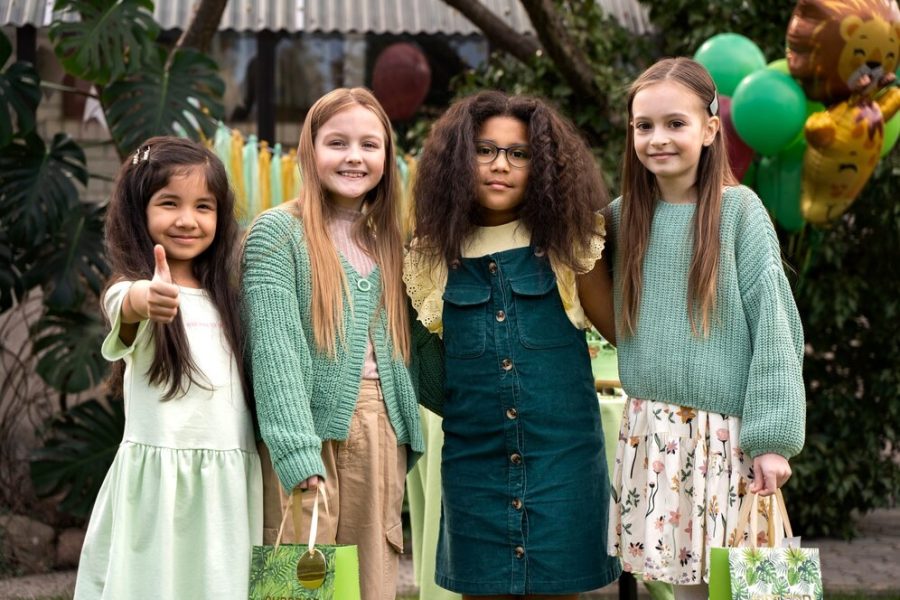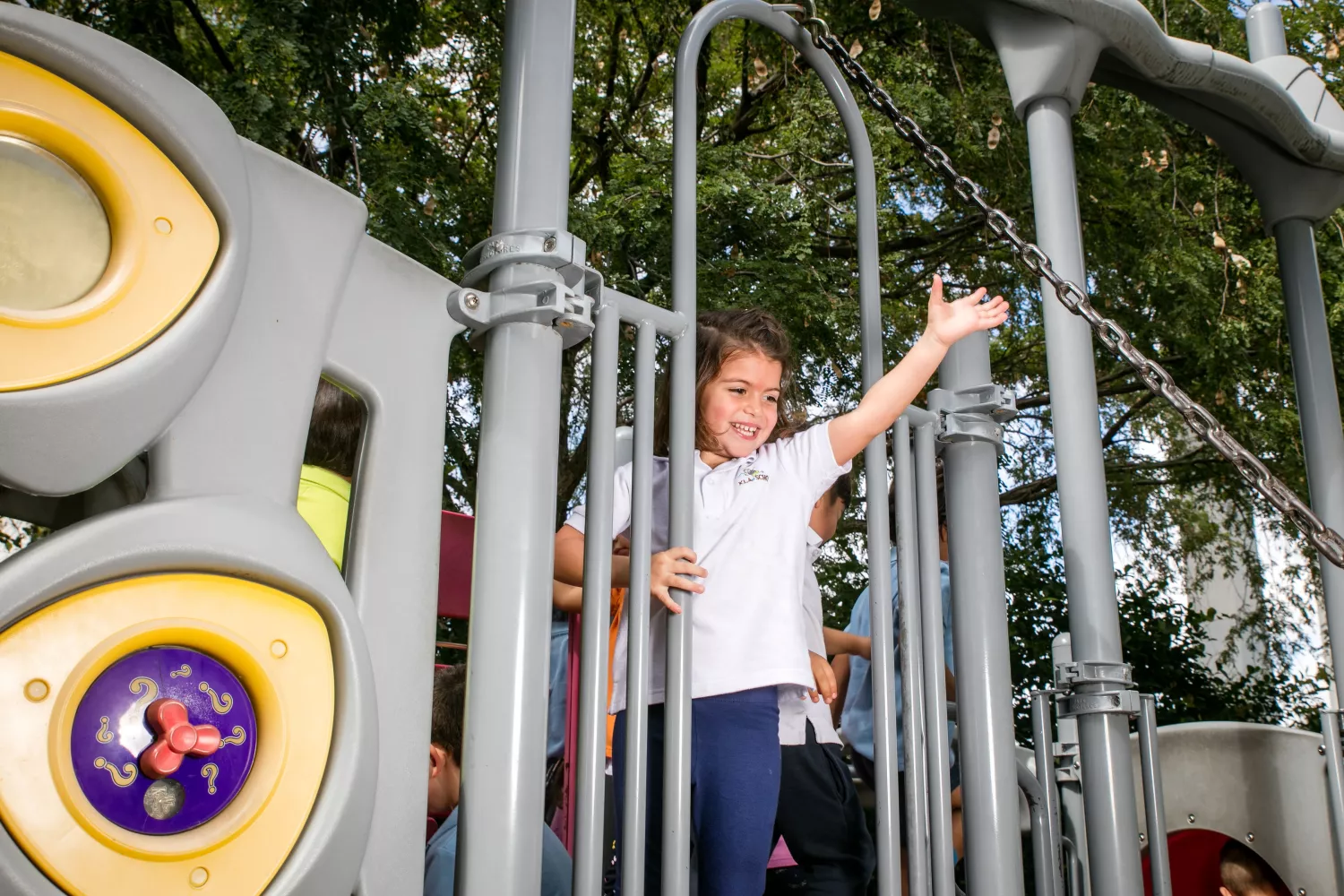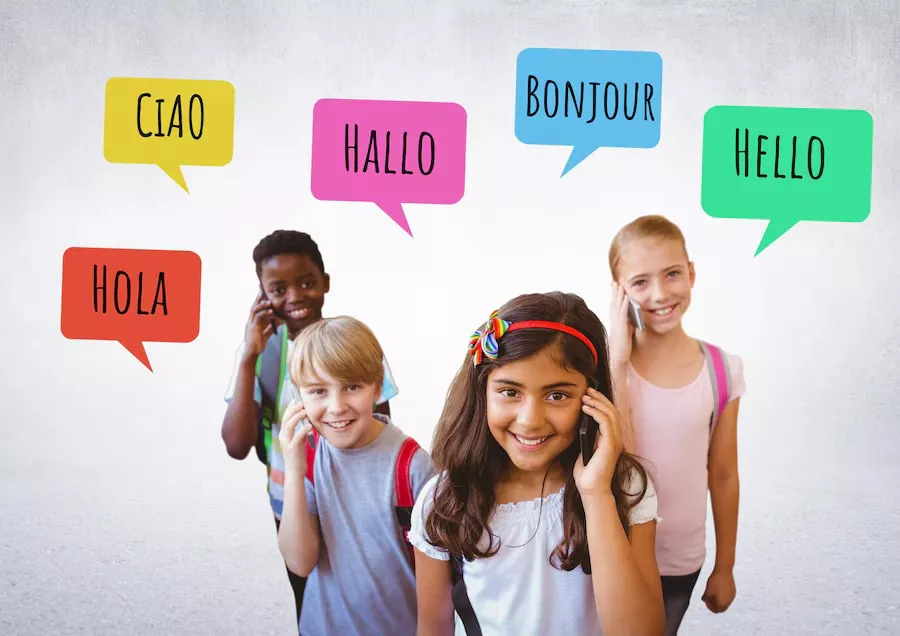How to Start Raising Bilingual Children: A Guide for Parents
Topics: Parenting
Age Range: Preschool
In today's increasingly interconnected world, the ability to communicate in more than one language is a vital skill. Raising bilingual children provides them with cognitive, social, and academic advantages that can last a lifetime. Whether you want to connect your children to your cultural roots or open up future professional opportunities, the decision to foster bilingualism is a powerful gift.
Understanding the Fundamentals of Raising Bilingual Children for Lifelong Success
When embarking on the journey of raising bilingual children, it is essential to establish a clear and strategic plan. Bilingual language development begins in early childhood, when the brain is highly neuroplastic and can absorb new sounds, grammar structures, and vocabulary intuitively. Introducing two languages simultaneously allows the child to develop proficiency naturally without confusion. Research has consistently shown that exposure to multiple languages during infancy leads to more flexible cognitive processing, improved executive function, and a greater ability to multitask.
The Critical Importance of Early Language Exposure in Dual-Language Development
Children pick up languages most easily during the "critical period," which happens in the first five years of life. During this time, their brains are like sponges, soaking up sounds, grammar, and pronunciation. If you start early — from birth or infancy — your child has a great chance of becoming fluent in two or even more languages.
Raising a bilingual child is exciting but can also feel a little overwhelming at times. It takes planning, patience, and lots of encouragement. Every family’s situation is different, but some strategies have been proven effective. The tips that follow are practical, research-backed ways to make language learning a natural part of everyday life, keep kids motivated, and build strong skills at home, at school, and beyond. By using these ideas, you can help set your child up for lifelong success with bilingualism.
Implementing One Person, One Language (OPOL) and Other Bilingual Household Models
One proven strategy for raising bilingual children is the One Person, One Language (OPOL) method. In this approach, each caregiver consistently communicates with the child in a distinct language, ensuring steady and balanced exposure to both languages from an early age. By maintaining clear boundaries between languages, OPOL helps children naturally distinguish and develop proficiency in each one.
In addition to OPOL, several other effective models can support bilingualism in the home:
- Minority Language at Home (ML@H): Using the non-dominant language exclusively at home
- Time and place strategy: Allocating specific times or locations for each language
- Language immersion programs: Enrolling children in schools or activities conducted in a second language
Choosing the most suitable model depends mainly on the family’s unique dynamics, the caregivers' language proficiency, and the availability of supportive community resources. With thoughtful planning and consistency, families can create rich, bilingual environments that set their children up for long-term success.
Adapting Strategies for Raising Bilingual Children in Monolingual Households
Raising a bilingual child in a monolingual household requires both creativity and consistent effort. Although it presents unique challenges, a variety of practical strategies can help foster second-language development even when parents are not fluent in the language themselves. Some proven approaches include:
- Establishing language routines, such as "Spanish Saturdays"
- Using language-learning apps and online resources
- Hiring bilingual babysitters, tutors, or enrolling in a language immersion daycare
- Attending bilingual storytimes or cultural events in the community
Ultimately, children thrive when the minority language is presented as a valuable, joyful, and integral part of daily life. When families create positive, consistent experiences around a second language, children are more likely to develop strong, lasting bilingual skills.
Leveraging Books, Music, and Media to Reinforce Language Skills
Children are natural mimics and often learn best through play, storytelling, and entertainment. Parents can harness this natural inclination to support bilingual language development by incorporating engaging resources into daily routines. Effective strategies include:
- Reading bilingual books or books in both languages
- Listening to music, nursery rhymes, and children's songs in the target language
- Watching educational TV programs and movies
- Encouraging interactive media, such as apps that teach vocabulary and grammar through games
Exposure to language through multiple modalities—reading, listening, watching, and interacting—helps children form strong, meaningful connections between words, emotions, actions, and ideas, reinforcing both their understanding and their love of language.
Incorporating Dual Languages Seamlessly into Daily Life
Embedding language learning into everyday routines is one of the most effective ways to build contextual understanding and promote true fluency. By weaving both languages naturally into daily activities, children experience language as a living, practical tool rather than a subject to be studied. Simple yet powerful techniques include:
- Labeling household objects in both languages
- Using both languages during routine activities such as cooking, dressing, or cleaning
- Practicing storytelling or journaling in a second language
- Offering choices in both languages to encourage comprehension and verbal responses
By making language part of the rhythm of daily life, families can nurture bilingual skills in a way that feels both meaningful and sustainable.
Ensuring Consistency Across Social and Educational Environments
Consistency is a key factor in raising bilingual children successfully. To develop strong language skills, children need ongoing, meaningful exposure to both languages, not only at home but also in their educational and social environments. Families can reinforce language learning across different areas of life by:
- Enrolling in dual-language or immersion programs
- Participating in bilingual extracurricular activities
- Building relationships with other bilingual families
- Encouraging extended family members to support language use
By creating a supportive, language-rich environment across all areas of a child's life, families can foster lasting bilingual proficiency and a strong, positive connection to both languages.
Maximizing Opportunities for Language Practice Through Travel and Cultural Immersion
Few experiences accelerate bilingual development as powerfully as full immersion in a community where the target language is spoken. Immersion not only deepens language skills but also fosters a richer understanding of cultural contexts. Key benefits of immersion experiences include:
- Rapid vocabulary expansion
- Improved listening comprehension
- Greater understanding of cultural nuances and social norms
- Increased confidence in real-world language use
While international travel offers the most intensive immersion opportunities, families can also create meaningful experiences closer to home. Local cultural festivals, heritage museums, bilingual storytimes, and language-focused camps all provide valuable, immersive environments that support both language growth and artistic appreciation.
Maintaining Motivation and Positive Attitudes Toward Language Learning
Sustaining a child’s motivation for bilingual learning over the long term requires creating enjoyable, meaningful experiences that keep language use engaging and rewarding. Some practical ways to nurture enthusiasm include:
- Celebrating language achievements with small rewards
- Connecting language use to hobbies (e.g., playing soccer in Spanish)
- Creating bilingual scrapbooks or photo albums
- Encouraging pride in bilingual identity
When language learning is tied to positive emotions, personal interests, and a strong sense of identity, children are more likely to stay motivated and committed to their bilingual journey.
Setting Realistic Goals and Monitoring Bilingual Progress Over Time
Raising bilingual children is a long-term journey, and setting realistic, flexible goals is essential for sustaining progress and motivation. Effective goal-setting includes:
- Establishing clear, attainable language objectives: Setting specific targets, such as learning a certain number of new words each week or holding a short conversation in the target language, provides structure and purpose.
- Regularly reviewing progress: Informal assessments, such as casual conversations, storytelling, or playing games, help parents gauge language development without putting pressure on them.
- Adjusting strategies as needed: As children's abilities grow and their interests evolve, adapting methods and materials ensures balanced proficiency in both languages.
Consistently measuring and celebrating achievements—whether small or large—builds children's confidence, reinforces their efforts, and fosters continuous growth in both languages.
Building a Community of Support for Bilingual Development
Community involvement plays a crucial role in strengthening both language acquisition and cultural identity. Surrounding children with a network of people who value bilingualism provides additional practice opportunities and fosters a sense of belonging. Practical ways to build a supportive community include:
- Joining bilingual playgroups or language exchange groups
- Seeking out mentors or language buddies
- Attending multicultural festivals and workshops
A supportive environment helps reduce feelings of isolation and reinforces language learning as a dynamic, social skill. When children see bilingualism celebrated and shared within their community, they are more motivated to embrace and sustain their language journey.

Understanding Bilingual Language Development Milestones and Variations
Bilingual children often follow slightly different linguistic timelines compared to their monolingual peers, and these variations are both normal. Recognizing typical bilingual milestones can help parents support their child's language journey with patience and confidence. Key developmental markers include:
- Babbling in both languages by 6-9 months
- Recognizing and responding to simple commands in both languages by 12-18 months
- Speaking simple sentences by 2-3 years old
- Code-switching (alternating languages) naturally without confusion
Parents need to remain patient and flexible during this process. Temporary mixing of languages or slight delays in speech onset are entirely normal and typically resolve over time as children's proficiency in each language improves. With ongoing support and exposure, bilingual children can achieve fluency in both languages, often developing enhanced cognitive and social skills along the way.
Recognizing and Addressing Common Challenges in Raising Bilingual Children
Raising bilingual children is a rewarding journey, but it also comes with its own set of challenges. Common hurdles families may encounter include:
- Language dominance imbalance: Children may naturally prefer the dominant societal language, which can lead to weaker skills in the minority language.
- Reluctance to speak the minority language: Especially as children grow and socialize more outside the home, they may resist using the less familiar language.
- External pressure to prioritize the dominant language: Well-meaning teachers, relatives, or peers may unintentionally discourage bilingualism, emphasizing the majority language instead.
To address these challenges effectively, parents can increase meaningful exposure to the minority language through activities, relationships, and daily routines. Maintaining a patient, non-judgmental attitude is crucial; children should feel supported, not pressured. Emphasizing the long-term cognitive, cultural, and personal benefits of bilingualism can also help sustain motivation and pride in maintaining both languages.
Long-Term Cognitive, Academic, and Social Advantages of Bilingualism
Extensive research highlights the lifelong benefits of bilingualism, showing how early language exposure can significantly shape a child's cognitive, academic, and social development. Some of the key advantages include:
- Enhanced executive function (problem-solving, multitasking)
- Greater empathy and cross-cultural understanding
- Superior verbal reasoning and reading comprehension
- Increased professional and academic opportunities
By investing in bilingualism, families not only equip their children with valuable communication skills but also prepare them to thrive in an increasingly interconnected world.
Embarking on a Fulfilling Journey Toward Raising Bilingual Children
Supporting your child's bilingual journey demands dedication, intentionality, and creativity. The rewards extend beyond language proficiency, offering deeper cultural appreciation, advanced cognitive skills, and greater adaptability in an interconnected world. Parents who commit to raising bilingual kids plant seeds of curiosity, resilience, and global citizenship—benefits that will enrich their children's lives for decades to come.
At KLA Schools, our programs are thoughtfully designed to support bilingual development from an early age, fostering a love of languages through immersive experiences, multicultural learning, and meaningful communication in both English and Spanish. Our Summer Camp also offers children the opportunity to continue learning Spanish in a fun, engaging outdoor setting, blending culture, creativity, and adventure all summer long.

